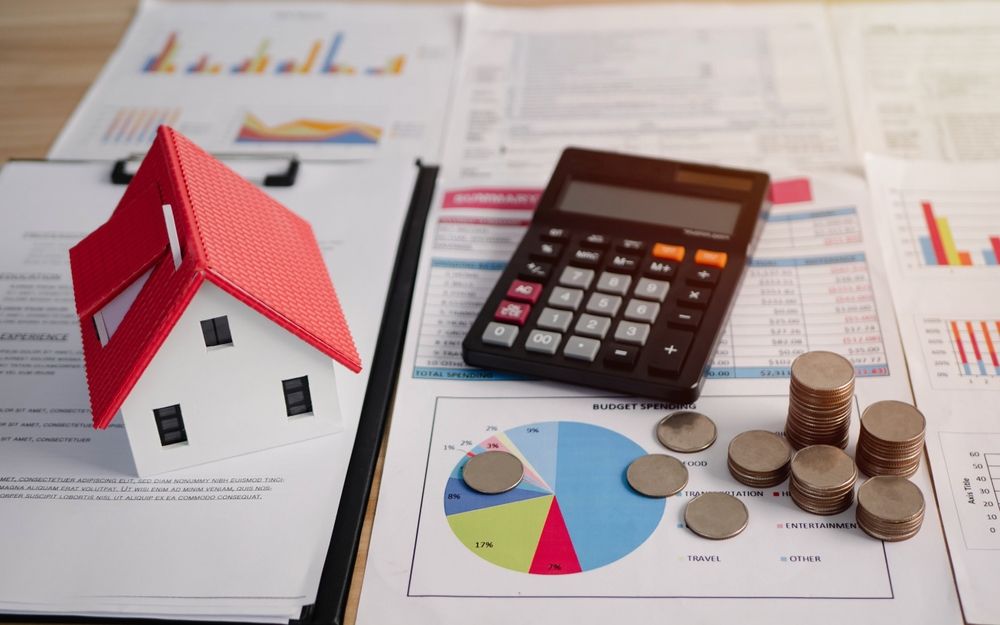
Purchasing a home is a significant milestone in anyone’s life. It’s a place where memories are made and dreams are realized. However, it’s more than just a roof over your head; it’s also a major financial commitment, and understanding the full extent of that commitment is vital to making a wise investment. One aspect of homeownership that can be easily overlooked, yet has a substantial impact on the overall cost, is property taxes. In this article, we will explore how property taxes can influence your home purchase, providing insights to help you make an informed decision.
The Role of Property Taxes in Homeownership
Property taxes are a levy by local governments used to fund various public services such as schools, law enforcement, and infrastructure. The amount you pay in property taxes is determined by the assessed value of your home and the tax rate set by your local government. While these taxes are a source of revenue for your community, they also represent a recurring cost that homeowners must bear.
Understanding the function of property taxes is crucial when considering a home purchase. These taxes can vary widely depending on the location of the property, and they can have a significant impact on your monthly and annual housing expenses. Some areas have higher tax rates due to better public services or higher property values, while others may have lower rates. Knowing the property tax rate can help you determine the true affordability of a home and plan your budget accordingly.
Assessment of Property Value and Tax Implications
The assessed value of your property is a key factor in determining your property tax bill. Local governments typically have a tax assessor who evaluates the value of each property in the area to ensure that the tax burden is distributed fairly. It’s important to understand that the assessed value is not always equivalent to the market value or the price you pay for the home.
Assessments are usually conducted on a regular basis, such as every year or every few years, and significant changes in the property market or improvements to your home can affect the assessed value. For potential homeowners, it’s beneficial to research past property tax records and understand how frequently assessments occur. Keep in mind that an increase in assessed value can lead to higher property taxes, which may affect your long-term budget.
Location, Location, Taxation: Geographic Influence on Property Taxes
The adage “location, location, location” is not only about the quality of the neighborhood or proximity to amenities but also applies to property taxes. Tax rates can differ significantly from one municipality to another, and even within the same city, rates can change from one district to another. When evaluating potential homes, it’s wise to look beyond the property lines and consider the tax landscape of the area.
In some cases, a home just a few miles away from another may have a drastically different tax bill. This can be due to various factors, including the financial needs of the local government, the wealth of the local population, or the presence of tax-increment financing districts. Therefore, when you’re house hunting, it’s important to factor in the property tax rate of each location as these costs will accompany you throughout your homeownership journey.
The Impact of Property Tax Caps and Exemptions
Some states and municipalities have taken measures to protect homeowners from significant property tax increases by enacting tax caps or offering exemptions. Tax caps limit the amount that property taxes can increase in a given year, providing a measure of predictability for homeowners. On the other hand, exemptions can provide relief for certain groups of people, such as senior citizens, veterans, or those with disabilities, by reducing the taxable value of their homes.
These measures can greatly affect the affordability of a home in the long run. Before purchasing, investigate whether the area you are considering has such provisions and if you qualify for any exemptions. This information can influence not only your initial budget but also your financial planning for the future.
Strategies for Managing Property Tax Expenses
Being proactive in managing your property tax expenses can save you money and prevent surprises. One strategy is to appeal the assessed value of your property if you believe it to be inaccurately high. This process involves gathering evidence, such as recent sales of comparable homes, to demonstrate that your home’s value is lower than the assessment.
Another approach is to include property taxes in your escrow account, allowing your mortgage lender to collect a portion of these taxes with each mortgage payment. This can ease the burden of a large annual or semi-annual tax bill and help you budget more effectively. Additionally, staying informed about changes in tax rates or assessment practices in your community will help you anticipate adjustments to your tax expenses.
Understanding the impact of property taxes on your home purchase is an essential part of responsible homeownership. These taxes can influence your choice of location, the type and size of home you can afford, and your long-term financial planning. By being well-informed about property taxes, you can better prepare for the costs associated with purchasing and owning a home.
Remember that property taxes fund important services that benefit you and your community. While they represent an additional expense, they also contribute to maintaining and improving the quality of life in your area. With careful consideration and smart planning, you can manage property tax expenses effectively and enjoy the rewards of owning your own home.
